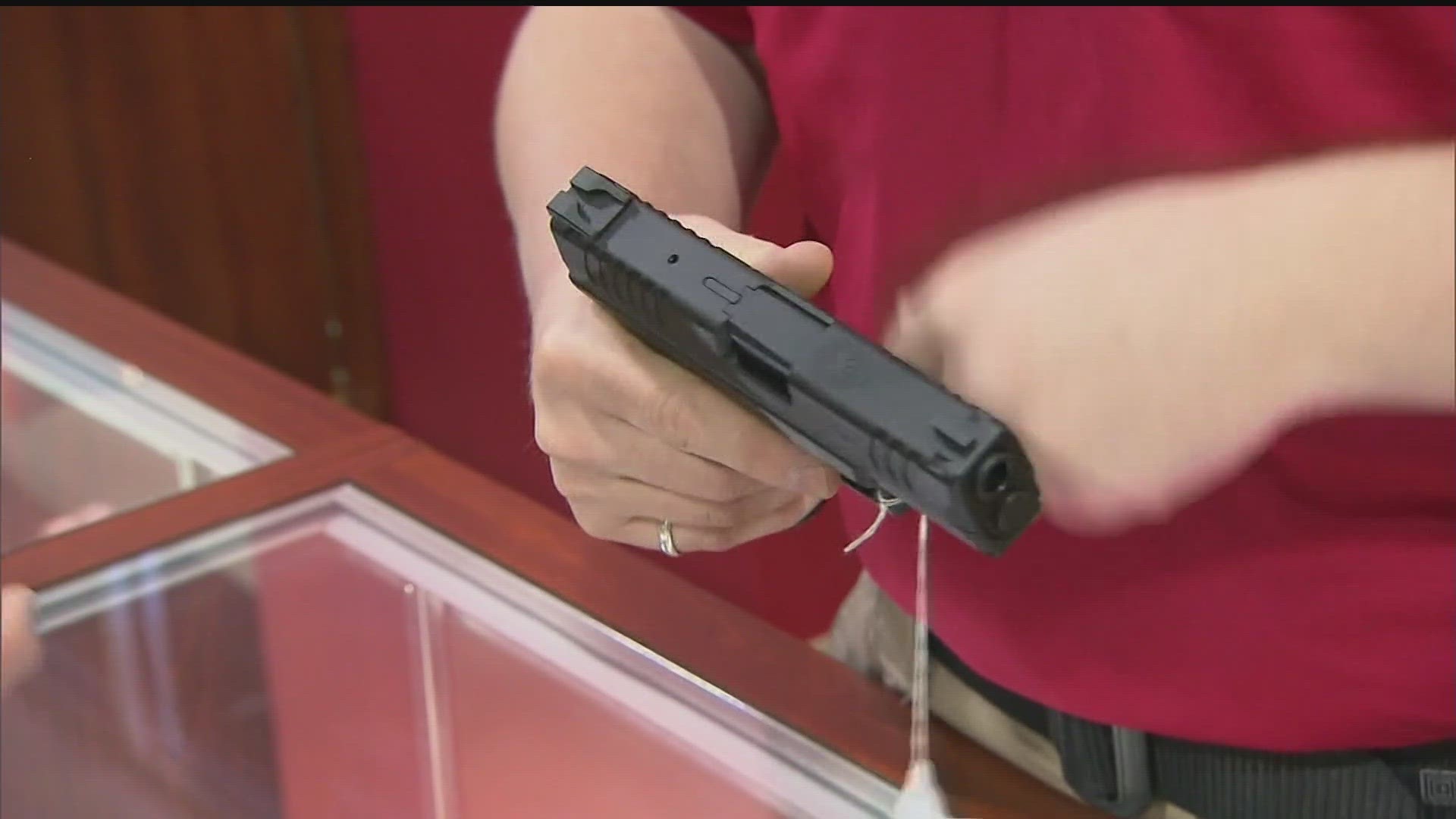ST PAUL, Minn — State lawmakers passed a plethora of new laws this past 2023 legislative session that are about to become reality.
The statutes could have a substantial impact on you and your family. They touch on a wide range of topics such as marijuana, gun background checks, catalytic converters, worker safety and bicyclists.
Here are the highlights of those rules that will go into effect on Aug. 1. A detailed summary of the new laws in 2023 can be found online, published by the nonpartisan House Public Information Services.
Adult-use cannabis
The legislation that made big headlines was the adult-use cannabis bill signed into law on May 22, making Minnesota the 23rd state to legalize recreational cannabis. Beginning in August, Minnesotans will be allowed to legally possess cannabis and certain cannabis-related convictions will be expunged.
If you're 21 or older you can possess or publicly transport 2 ounces of cannabis flower, and up to 8 grams of cannabis concentrates.
You can also possess up to 2 pounds of cannabis flower in your home. Limits on edible cannabis product possession are 800 milligrams of THC, the active ingredient in cannabis.
Rep. Zack Stephenson (DFL-Coon Rapids) and Sen. Lindsey Port (DFL-Burnsville) sponsored the legislation. The new law will also prohibit possession of "opened cannabis products in a motor vehicle, similar to the existing "open bottle" law, according to House Public Information Services.
Misdemeanor cannabis convictions will begin to be expunged. The records will not be destroyed but will be removed from public view and will not appear in criminal background checks.
A Cannabis Expungement Board will examine more serious cannabis convictions on a case-by-case basis.
The board will determine whether a person's felony cannabis conviction should be expunged or if they should be resentenced to a lesser offense.
Public safety
Effective Aug. 1, a new law will require all private transfers of pistols and semiautomatic military-style assault weapons to be subject to background checks.
Also taking effect is the Minnesota Rehabilitation and Reinvestment Act which requires the Department of Corrections to develop a personalized rehabilitation plan for every inmate with at least a year left to serve their sentence. If an enrollee makes "sufficient progress," their sentence could be reduced by up to 17%.
Other parts of the law, sponsored by Rep. Kelly Moller (DFL-Shoreview) and Sen. Ron Latz (DFL-St. Louis Park), include prohibiting peace officers from joining or supporting hate or extremist groups.
Reimbursing firefighters and emergency workers for purchasing soft body armor, strengthening laws prohibiting surreptitious observation or photographing that invades a person's privacy and requiring landlords to disclose all non-optional fees in the lease agreement is included in the legislation.
Curbing catalytic converter thefts
A new rule aims to make it more difficult to sell stolen catalytic converters to scrap metal dealers. The law, sponsored by Rep. Ruth Richardson (DFL-Mendota Heights) and Sen. John Marty (DFL-Roseville), prohibits the possession of a detached catalytic converter with a "few narrow exceptions," according to the House Public Information Services.
The law also makes it a potential felony charge for a person to be in possession of an illegally acquired detached catalytic converter. Scrap metal dealers cannot buy a catalytic converter not attached to a vehicle unless it has identifying markings that can connect it to that certain vehicle.
Courts will be required to include the costs of replacing a catalytic converter as part of any restitution ordered in a criminal case.
Worker safety
Rep. Hodan Hassan (DFL-Mpls) and Senate President Bobby Joe Champion (DFL-Mpls) sponsored a law that establishes worker safety requirements in warehouses.
Under the law, employers are required to provide each warehouse worker with a written description of any quotas, including details about how their work is measured and any action that might result if they fail to meet those quotas. The requirements are aimed at helping employees at companies like Amazon.
Bicyclists at intersections
Under a new law, Minnesota bicyclists will be allowed to roll through stop signs as long as they do it with caution and skill.
The law states that "a bicycle operator who approaches a stop sign must slow to a speed that allows for stopping before entering the intersection or the nearest crosswalk. If there is not a vehicle in the vicinity, the operator may make a turn or proceed through the intersection without stopping."
Rep. Frank Hornstein (DFL-Mpls) and Sen. D. Scott Dibble (DFL-Mpls) sponsored the law that also designates the Mississippi River Trail Bikeway and the Jim Oberstar Bikeway as state bicycle routes.

